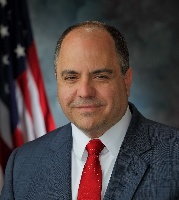West Bloomfield Juvenile Law Lawyer, New York
Sponsored Law Firm
-
 x
x

Click For More Info:
-
Law Office of Mark S. Guralnick
55 Madison Avenue 4th Floor Morristown, NJ 07960» view mapCriminal Defense Law Dedicated. Fearless. Successful.
Mark S. Guralnick and his legal team have helped clients throughout the USA and across the world by applying unparalleled dedication and hard work to each case.
800-399-8371
Not enough matches for West Bloomfield Juvenile Law lawyer.
Below are all West Bloomfield Criminal lawyers.
Susan Kathleen Duke
✓ VERIFIEDI consider communication to be a key aspect of the lawyer-client relationship, which is why I return phone calls and emails promptly. My clients have ... (more)
Raymond Paul Sciarrino
✓ VERIFIEDSciarrino & Sciarrino, P.C. is a criminal law firm serving Rochester and the surrounding areas of Livingston County and Wyoming County. For more than ... (more)
Gregory A. Franklin
✓ VERIFIEDAn adoptive parent himself, Gregory Franklin has experienced first-hand the challenges and joys of adopting a child. Adoptions involve a highly emotio... (more)
Bernard D. Levine
✓ VERIFIEDBernard D. Levine is a practicing lawyer in the state of New York.
James A. Napier
✓ VERIFIEDJames A. Napier is a practicing attorney in New York state. He graduated from Georgetown University Law Center with his J.D. in 1986. He currently wor... (more)
FREE CONSULTATION
CONTACTFREE CONSULTATION
CONTACTMichael Schmitt
FREE CONSULTATION
CONTACT Mark Guralnick Morristown, NJ
Mark Guralnick Morristown, NJ AboutLaw Office of Mark S. Guralnick
AboutLaw Office of Mark S. Guralnick Practice AreasExpertise
Practice AreasExpertise





